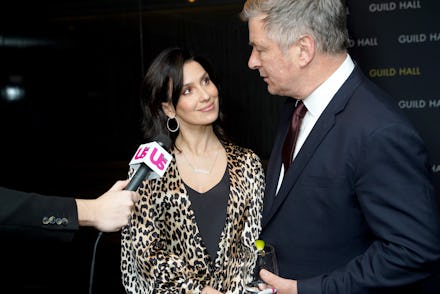Why did Hilaria Baldwin fake her identity? 2 psychologists attempt to explain

Last week, Twitter user @lenibriscoe posted a whole lot of evidence suggesting that Hilaria Baldwin, influencer and wife of Alec Baldwin, orchestrated “a decade long grift where she impersonates a Spanish person.” There’s her cringeworthy debut on Good Morning America where she employs an accent, and an appearance on the Today show where she seems to forget the English word for “cucumber.” The case of purportedly faked heritage lit up the internet, stoked by lingering rage from other cases of cultural identity fraud, like the Rachel Dolezal scandal.
Until her background was thrown into question, Hilaria Baldwin’s biographies on IMDb and Wikipedia asserted she was born in Mallorca, Spain. On a podcast earlier this year, she claimed she “moved here” to America when she was “19 to go to NYU,” adding, “I knew no pop culture.” But after the “Hilaria” drama started going viral on Twitter, people claiming to be former high school classmates came out of the woodwork to call B.S.
It turns out her given name is Hillary Hayward-Thomas and she lived in Massachusetts as a teenager, according to her old MySpace page and the Cambridge School of Weston yearbook. Those who claim to know her described Hillary as the “archetypal northeastern prep schooler” with “no accent.”
It’s important to note that the Twitter investigation into Hilaria neé Hillary should be taken with a grain of salt. Baldwin has taken to her social media channels to try to clear up the provenance of her mysterious accent, claiming she was actually born in Boston but spent much of her childhood going “back and forth” between America and Spain. “I’m really lucky that I grew up speaking two languages,” she said, noting that her accent fluctuates. “When I get nervous or upset, then I start to mix the two,” she claimed.
But this elaborate explanation feels farfetched to a lot of folks. And the much larger problem is that Baldwin has pushed the image of herself as a Spanish person for publicity. She’s been the cover star of Hola! magazine, a Spanish-language outlet based in Madrid, which identified her as Spanish. She has enthusiastically promoted her numerous appearances in Latina magazine, despite the fact that Spain isn’t even part of Latin America. Addressing the criticism that she colonized her cultural identity, Baldwin asserted: “Yes, I am a white girl,” noting that “Europe has a lot of white people in there. [...] I grew up with the two cultures. So it’s really as simple as that.” Blergh, Baldwin clearly does not understand how her appropriation often excludes people of color from benefitting from the same opportunities.
No matter which bits and pieces of Baldwin’s biography are true, it seems likely the current uproar around her cultural identity started as a smaller untruth that snowballed. "When people start lying, they start small. And then the lies become bigger and bigger and bigger,” explained Dr. Tali Sharot, who co-authored a paper on what lying does to our brains. “We found that the response in the amygdala, part of the brain that is important for emotion, goes down over time. The more it goes down, the more likely we are to lie more and more.” If assumptions about Baldwin’s identity benefitted her public image in some way, perhaps making her seem more cultured or worldly, that offered her positive reinforcement to continue the ruse.
“It’s so hard to guess at motivation without having a chance to assess someone in person, especially with a public figure,” noted Aimee Daramus, a Chicago-based psychotherapist. “It could be misplaced white guilt, like people who try to show that they understand racism because they’re one-sixteenth Native American. It could just be about branding from her point of view. What all of those have in common, though, is being unaware or uncaring about how that fetishization is hurtful to many people of color.”
Hilaria Baldwin has incorporated her supposedly Spanish identity into many facets of her life, including the names of her five children with Alec Baldwin. Even the family dog has a Latin-sounding moniker: Diego Manchego. The podcaster and influencer might've been trying to pay homage to a culture she admires. But, as Daramus noted, when "deep cultural traditions and beliefs get imitated on a superficial level, put on and taken off like a Halloween costume," the result is almost always "hurtful, because they put people into specific boxes that are defined by white culture."